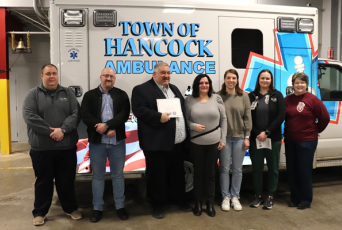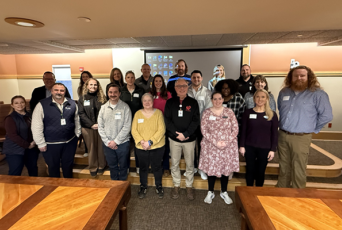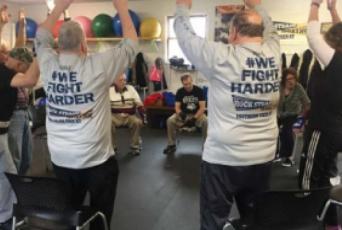
Platelet Rich Plasma (PRP) Injection
What is a Platelet Rich Plasma (PRP) injection?
Platelet Rich Plasma (PRP) injection is a procedure we offer in the Binghamton area that uses growth factors found in your own blood to stimulate and improve healing at sites of injury.
Platelets contain many chemical signal molecules that cause cells to divide, produce protein, and generate a healing response. Whenever you have a cut, platelets aggregate to form the clot, then release these chemical signals to induce healing. By concentrating platelets from your blood and injecting them into an injured joint, tendon, or ligament, we can stimulate more rapid healing
in the area.
What happens in the procedure?
Your blood is drawn, usually from the elbow, and spun in a centrifuge for several minutes. The spinning causes the blood to separate into layers and the layer with the platelets and growth factors is isolated and injected into the treatment area. In order to improve the accuracy of placement, the injection is frequently done with ultrasound guidance. Once injected into the site, the growth factors accelerate healing.
How long does the procedure take?
The actual PRP injection may take from a few seconds to a few minutes depending on the specific site, but you should expect your appointment to take 30-60 minutes. Some research suggests that for certain complaints a series of 3 injections over several weeks may be superior to a single isolated injection.
How safe is PRP?
PRP injections offered at our Binghamton area clinic are extremely safe. PRP is a component of your own blood, therefore you cannot be allergic to it and this eliminates medication side-effects. Occasionally a local numbing medicine is used with some injections, but this is generally very safe as well. As with any injection, there is a small risk of infection, bruising, or injury to nearby structures.
Who can have PRP?
Almost anyone can have PRP. Your doctor may recommend avoiding PRP injections if you have:
- A history of metastatic cancer
- An infection near the treatment site or severe infection elsewhere
- A blood-clotting disorder
- Severe liver disease
Will PRP interact with my medications?
No, PRP does not interact with any medications, but some medications or substances may reduce the effectiveness of PRP. Your physician will advise you of any medications that should be avoided around the time of your injection. Smoking reduces the effectiveness of PRP.
If I get PRP what can I take for pain?
Usually the pain after a PRP procedure is minor. You may take acetaminophen (Tylenol) if desired. Icing is generally discouraged since it will reduce blood flow to the area.
What conditions are treated by PRP injection?
PRP has been used for many conditions, both related to the musculoskeletal system and to other systems. At UHS Sports Medicine in the Binghamton region, we primarily use PRP to treat:
- Arthritis
- Injuries of tendons
- Injuries of ligaments
- Muscle tears
PRP is also used during select surgeries to promote healing.
Interested in PRP?
Please call the UHS Orthopedic Center at 607-771-2220 to schedule an appointment for plasma treatment in the Binghamton area.
UHS News
-
 UHS Child Care gets special visit for "Read for the Record" dayFebruary 26, 2026
UHS Child Care gets special visit for "Read for the Record" dayFebruary 26, 2026The children enrolled at UHS Child Care were excited to welcome guest readers for a special occasion on Thursday, February 26.
-
 UHS Teams and Local Responders Recognized After Lifesaving Cardiac Arrest ResponseFebruary 25, 2026
UHS Teams and Local Responders Recognized After Lifesaving Cardiac Arrest ResponseFebruary 25, 2026The Hancock Fire Department honored a remarkable “chain of survival” that recently saved the life of 40-year-old Jennifer Wormuth during a sudden cardiac arrest. The recognition highlighted the coordinated efforts of local first responders and the advanced clinical care provided within the UHS system.
-
 One local heart patient’s journey to a healthier futureFebruary 23, 2026
One local heart patient’s journey to a healthier futureFebruary 23, 2026Your heart works hard for you every day. From keeping blood flowing to supporting your energy and overall well-being, your heart is truly at the center of your health. That’s why having access to expert cardiac care close to home is so important.
-
 UHS hosts BLI's 2026 Healthcare DayFebruary 20, 2026
UHS hosts BLI's 2026 Healthcare DayFebruary 20, 2026UHS proudly hosted the Broome Leadership Institute’s (BLI) 2026 Healthcare Day on Feb. 19, welcoming the Class of 2026 for a full-day, immersive look into how UHS cares for the community and supports the region’s evolving healthcare needs.



